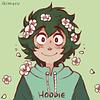You need to sign in or sign up before continuing.
Take a photo of a barcode or cover
Don't hate me, but...I didn't love this book. Don't get me wrong, there are many inspiring stories, but, as a teacher, I just kept saying "yeah, well, duh." I guess I didn't learn anything from this book I didn't already know.
I picked this up because I watched one of Ken Robinson's TED Talks: Do Schools Kill Creativity, which includes one of the anecdotes that found its way into the book. I thought that the story, of the choreographer of CATS, was sweet and funny, and I wanted to know more. So, first recommendation, go and watch this video before reading this book. It is around twenty minutes, and if you don't like the tone of the video, you will not like the tone of the book.
I don't really know how to classify this book. I found it through an education track, but it goes so far past that. The so-called Element is really that thing that everyone has that they are good at, a passion that they pursue. In my world, I usually call these our superpowers. This book is a series of true stories, about choreographers and television creators and mathematicians and even a Beatle, finding who they are.
I would recommend this to anyone who has to work with children, anyone who has children, or anyone who really just needs a few inspiring stories in their life. It is a book that I would like for my own personal bookshelf, because I think that the message, of finding your element, is so important, and I cannot imagine the message being told in a better way.
I don't really know how to classify this book. I found it through an education track, but it goes so far past that. The so-called Element is really that thing that everyone has that they are good at, a passion that they pursue. In my world, I usually call these our superpowers. This book is a series of true stories, about choreographers and television creators and mathematicians and even a Beatle, finding who they are.
I would recommend this to anyone who has to work with children, anyone who has children, or anyone who really just needs a few inspiring stories in their life. It is a book that I would like for my own personal bookshelf, because I think that the message, of finding your element, is so important, and I cannot imagine the message being told in a better way.
challenging
hopeful
informative
reflective
slow-paced
I checked out this audiobook while listeningto Ken Robinson speak. He is an excellant orator in person, and I was excited to see he was also reading the audiobook. Granted, he's a better speaker in person, it was still great to listen to him again.
I found the book to be good for general listening. It makes me think to be more mindful as i raise my own children - as to their likes and aptitudes.
My main critique is that it come across as cherry-picking after a while, inherent when you have to choose a limited number of anecdotes. Lots of famous people who find there element, against the odds, and are successful. Does that mean finding my element will make me rich and famous? No, of course not. However, I do find it more difficult to identify with their cases as a result. Later in the book, I recall there being a bit more coverage of how it might affect the typical case.
I'm left wondering, how do I find my element?... which is potentially covered in the follow-up book, as I recall.
I found the book to be good for general listening. It makes me think to be more mindful as i raise my own children - as to their likes and aptitudes.
My main critique is that it come across as cherry-picking after a while, inherent when you have to choose a limited number of anecdotes. Lots of famous people who find there element, against the odds, and are successful. Does that mean finding my element will make me rich and famous? No, of course not. However, I do find it more difficult to identify with their cases as a result. Later in the book, I recall there being a bit more coverage of how it might affect the typical case.
I'm left wondering, how do I find my element?... which is potentially covered in the follow-up book, as I recall.
Marking this as read even though I stopped reading at the halfway point. I liked the book, but it was telling me things I already know. Attend to those things you immediately enjoy, especially when you are young. Even if your passion seems impractical, do it. Maybe you will find a way to make a living at it because it is your passion. You'll probably be good at it. I liked the profile on Aaron Sorkin where he explained he thought he was watching all those stage productions to become an actor, but as it turned out he was a natural talent at writing.
Good humored, well researched (or perhaps documented?) and light hearted, Ken Robinson provides further proof that listening to the voices in your head can be of great service. Do what feels right, find your people, be happy, and succeed in your own way.
Interesting interviews and collected studies of individuals doing what they love and doing it very well. Plenty of valid criticism of formal education and a little about how to remedy the problems. I'd like to see more about how to find and claim individual creativity in adulthood; i.e. how to recover from the effects of years of schooling.
This book encourages every individual to reach their fullest potential. I am inspired and determined to find my element and reach my goals.
Was really forcing myself to read it and not moved much, quit 1/4 of the way in. Maybe I'll come back to it another time.




